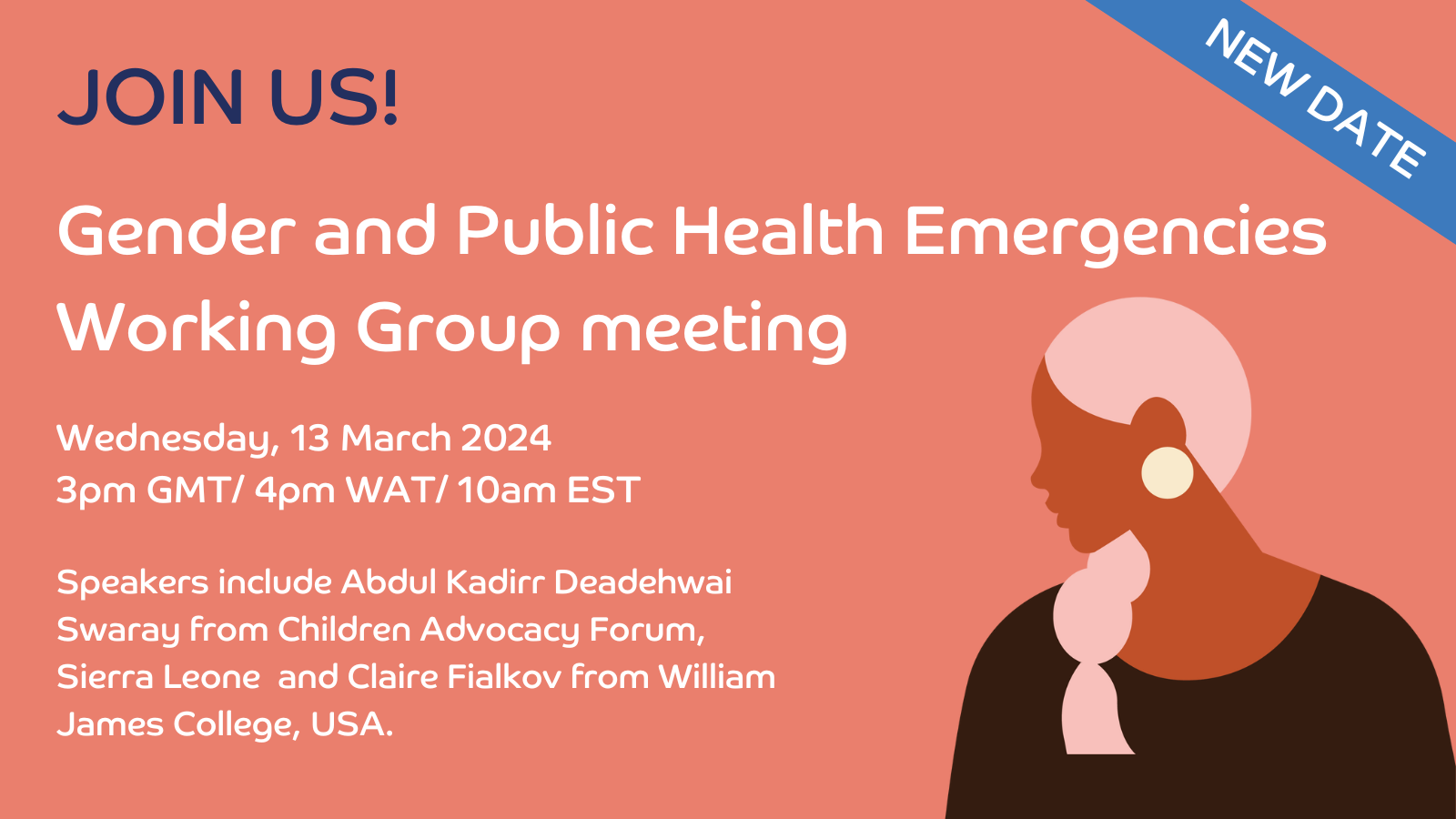Join us for the Gender and Public Health Emergencies Working Group webinar, taking place this March, with exciting speakers! All members welcome!
Wednesday, 13 March 2024 • 3pm GMT/ 4pm WAT/ 10am EST
Come and hear from our presenters, discussing issues related to gender and public health emergencies, ask questions, and meet others working in this field. Our presentations this month include:
Abdul Kadirr Deadehwai Swaray, Children Advocacy Forum, Sierra Leone
Abdul is a Sierra Leonean and Executive Director for Children Advocacy Forum Sierra Leone (CAF-SL). He is a Child and Youth development activist and public interest campaigner and steering committee member of numerous civil society alliances including Scaling Up Nutrition and Immunization Civil Society Platform (SUNI-CSP), the Chairman for the Coalition of Young Generation of Smart Climate Change and Food Security Initiative, Steering Committee member for SUN Technical Working group, and a Technical Committee member for the Directorate for Food and Nutrition in the Ministry of Health and Sanitation in Sierra Leone and Global Member for PMNCH for Women’s, Children’s and Adolescent’s Health.
‘Education as a Path to Gender Justice for Maasai Youth’ by Claire Fialkov, William James College, USA
Claire Fialkov will be talking through her study, first published in the Africa Journal or Gender, Society and Development, exploring the differences between adolescent boys and girls and their tendency to accept the influence of others. The study measured authenticity in 306 adolescent Maasai boys and girls in Kenya and found that boys are significantly more likely to accept external influence than girls. Accepting external influence is inversely correlated with authenticity, a character strength linked with mental health and well-being, and arguably needed for democratic societies to flourish. Furthermore, unquestioned adherence to external social inductions serves to maintain the status quo and prevents responsiveness to needed change. The embodiment of authenticity is crucial for its actualization and takes place in the context of relationships. Schools represent a microcosm of the larger society and provide a window into different cultural practices and, as such, represent opportunities for transformation. The study discussed the social implications of these ideas, and the role Kenyan teachers play in the advancement of gender justice.
“Identifying violence at the community level based on health symptoms” by Poonam Kathuria, SWATI, India
Poonam Kathuria founded and directs SWATI, a feminist organisation fighting gender-based violence in India at different levels. Their main initiatives are developing a rural health sector response to violence against women and a governance response to public space violence against rural women and girls.
Poonam was awarded the Dame Nita Barrow Distinguished Visitorship, 2015 by the University of Toronto. Her latest work is a co-edited collection titled Indian Feminisms – Individual and Collective Journeys.
Details of how to join the webinar will be circulated on the google list. If you would like to sign up to receive this information and to join the Working Group, please click here!






